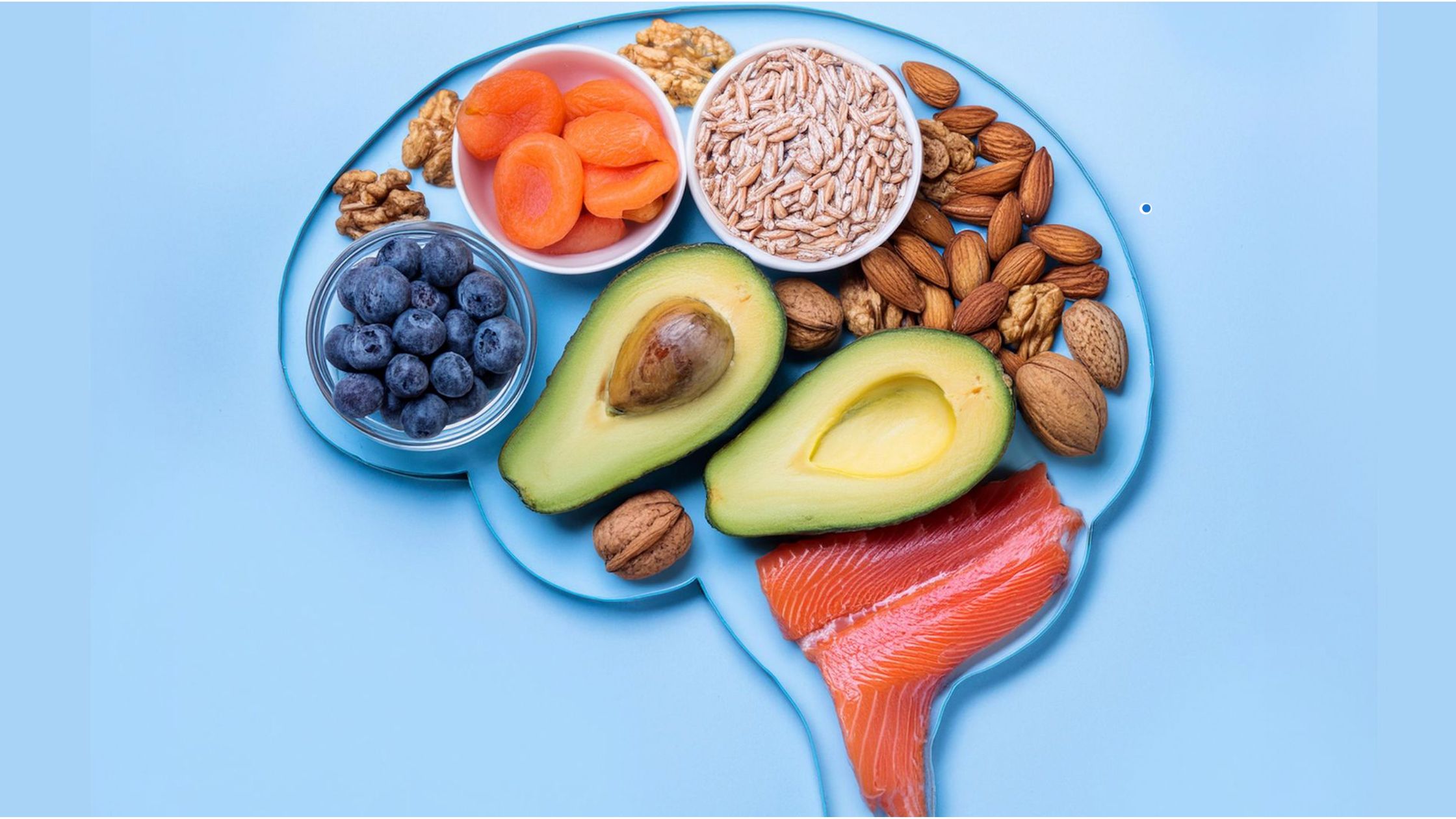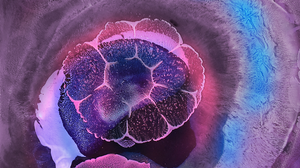When we think about our health, we might consider our fitness, our heart or our weight, but how often do we think about the health of our brains? And yet it can be just as important to keep our brains healthy if we want our memory, our focus, and our cognitive skills to stay as sharp as possible.
The good news is that there are a number of things you can do to keep your brain healthy and much of it is linked to nutrition. Which is why we thought it might be a good time to take a look at which vitamins can help to support our overall brain health and how our diet can make a big difference to our cognitive functions. Read on to find out more about the essential brain health vitamins alongside some tasty recipes you can use to support brain function and cognitive performance.
Vitamins for the brain: which ones do I need?
There are a number of different vitamins which are known to play a significant role in supporting brain health, and some of the most important include the B vitamins. Vitamin B6, B12 and B9 (which is also known as folic acid) can play an important part in helping to support your cognitive ability[i]. Vitamin B1, or thiamine, is known to be crucial for cell function, which the brain needs to help prevent deficiencies which could lead to neurological problems later in life.
Vitamin B2 (also known as riboflavin) helps to grow cells, produce energy and support metabolism whilst vitamin B3 (or niacin) is an antioxidant which helps reduce excess inflammation.
Pantothenic acid, also known as vitamin B5, helps our body’s enzymes build and break down fatty acids for supporting brain health, and vitamin B6 (or pyridoxine) is known for its role in disease prevention. Vitamin B7 (or biotin) is crucial for cellular signalling via neurotransmitters and vitamin B9 (folate) helps support neurotransmitter function and balanced psychological health[ii]. All this means that the B vitamins are some of the most essential vitamins needed when it comes to keeping our brains working as effectively as possible.
Vitamin D is a fat-soluble nutrient which can play a number of different roles within the body. It is known for its impact on the immune system, but deficiencies in vitamin D can lead to problems with cognitive health and brain fog[iii]. Symptoms can include poor concentration as well as problems with memory, and a deficiency in vitamin D can also be linked to conditions such as depression. Vitamin D can therefore be linked to both mood and memory, so it remains an important vitamin when it comes to good mental health.
Omega-3 fatty acids have also been found to be extremely useful when it comes to protecting the brain. These polyunsaturated fatty acids, which are usually found in fish oils, have been known to be of significant benefit to our cognitive functions and even issues of brain shrinkage[iv].
What foods support brain health?
Knowing which vitamins are good for our brains is one thing but getting them into our bodies can be another issue entirely! We therefore need to ensure that we have as balanced a diet as possible to make sure that all the right nutrients are being taken into our bodies in the required amounts. This sounds easy in theory, but in practice it can be difficult to achieve, so here are a few of the foods that you might want to focus on getting into your diet in order to help support your brain health.
Eggs, dairy and vegetables
We know that B vitamins are important for maintaining good brain health but how can you go about finding them in the everyday foods you eat? The good news is that this is relatively easy for most of us. Eggs are a great source of B vitamins, including B7, whilst yoghurt is usually high in both vitamin B2 and B12. You should also aim to include legumes in your diet such as black beans, edamame beans, lentils and chickpeas since these contain B9, B1, B2, B3, B5 and B6.
Salmon is a great vitamin B booster as it's naturally rich in all of them, however, it is particularly known for containing B2, B3, B6 and B12.
And if you don’t eat fish or dairy, there are plenty of plant sources when it comes to the B vitamins. Sunflower seeds can provide as much as 20% of your recommended daily value of vitamin B5 while leafy greens are a great source of vitamin B9[v].
Fatty fish
Omega-3 fatty acids tend to come from fish oils (vegan options are now available), so it stands to reason that fatty fish (think salmon, mackerel, anchovies, sardines, and herring) should also be an important part of your diet. Ideally, you should be aiming to eat fish at least twice a week, but make sure you are choosing varieties which are low in mercury, such as salmon, cod, canned tuna and pollack[vi].
There are also a number of berries which are known for being beneficial for our brain health. Blueberries are considered to improve short term memory loss issues and blackcurrants are packed with vitamin C that can play a part in helping support brain degeneration issues such as dementia and Alzheimer's disease[vii].
Most of us find ourselves reaching for a strong coffee first thing in the morning to help get ourselves going, and there is an important reason for this. The caffeine found within our daily cup of coffee has a number of positive effects on the brain, including increasing alertness, improving our mood and sharpening our concentration. There is also evidence to suggest that drinking coffee over a long term can reduce the risk of neurological diseases such as Parkinson's and Alzheimer's[viii]. However, it is important to remember that drinking too much coffee can also have a negative impact on your sleep and create other health issues, so, as with everything, it's important that it is taken in moderation.
The good news is that as well as coffee, some of our other favourite foods can be part of a brain supporting diet. Red wine contains an antioxidant called resveratrol, which helps improve blood flow to the brain, to help us concentrate[ix]. Of course, it goes without saying that a little too much red wine can definitely have the opposite effect! Dark chocolate is another tasty way to help protect our brains, as the antioxidants it contains can help guard against free radicals and support the learning and cognitive functions of the brain[x].
Recipes to support your brain health
The above might sound like a complicated list of foods to get into your diet so here are a few easy but tasty recipes to help make sure you're eating the right foods.
Salsa spaghetti with sardines
Start by boiling 100g of wholewheat spaghetti. In a separate bowl, mix together two finely chopped large ripe tomatoes, a chopped red onion, half a teaspoon of finely chopped red chilli, 15g of pitted black Kalamata olives, the zest of half a lemon and four tablespoons of shredded basil or a teaspoon of chopped fresh oregano.
Then, drain the cooked pasta and return it to the pan, tossing it well with the tomato mixture. You should now drain two 120g cans of sardines and chop the fish into chunky pieces. Add the sardines to the pasta and then season with lemon juice pepper and a little oil from the sardine can[xi]. Enjoy!
Salmon and prawn stack
For this recipe you need to prepare two salmon fillets for the grill and cook them for around 10-12 minutes. During this time, chop one onion, 2-3 slices of chorizo and one pepper into small cubes. Then break two or three crackers into small pieces in a separate bowl and add a teaspoon of honey. On the stove, heat a pan and add a handful of prawns, frying them on a low heat for a few minutes in extra virgin olive oil. If you have around cooking mould, put this on your plate and spoon in all of your ingredients to create a delicious looking stack. You can then serve with a mixed salad and the cooked salmon from the grill[xii].
We may not always pay as much attention to the health of our brains as we should, but good brain health is important as it can play a huge part in our overall quality of life. Understanding the vitamins needed to help you achieve optimal brain health is important, and if you find these difficult to work into your daily diet, then you might want to consider taking an additional supplement.
Sources:
https://www.webmd.com/brain/ss/slideshow-brain-supplements
https://www.cnbc.com/2022/08/05/harvard-nutritionist-the-vitamin-that-keeps-her-brain-young-and-healthy-and-foods-she-eats-every-day.html
https://www.healthline.com/nutrition/vitamins-for-brain-fog
https://www.ageuk.org.uk/information-advice/health-wellbeing/mind-body/staying-sharp/looking-after-your-thinking-skills/nutritional-supplements-and-cognitive-ageing/
https://www.health.harvard.edu/healthbeat/foods-linked-to-better-brainpower
https://www.bbcgoodfood.com/howto/guide/10-foods-boost-your-brainpower
https://www.healthline.com/nutrition/11-brain-foods
https://www.unitypoint.org/news-and-articles/15-brain-foods-that-may-help-preserve-your-memory
https://www.bbcgoodfood.com/recipes/salsa-spaghetti-sardines
https://www.hey.nhs.uk/wp/wp-content/uploads/2017/07/P4BR-Nutrtion-Booklet.pdf








